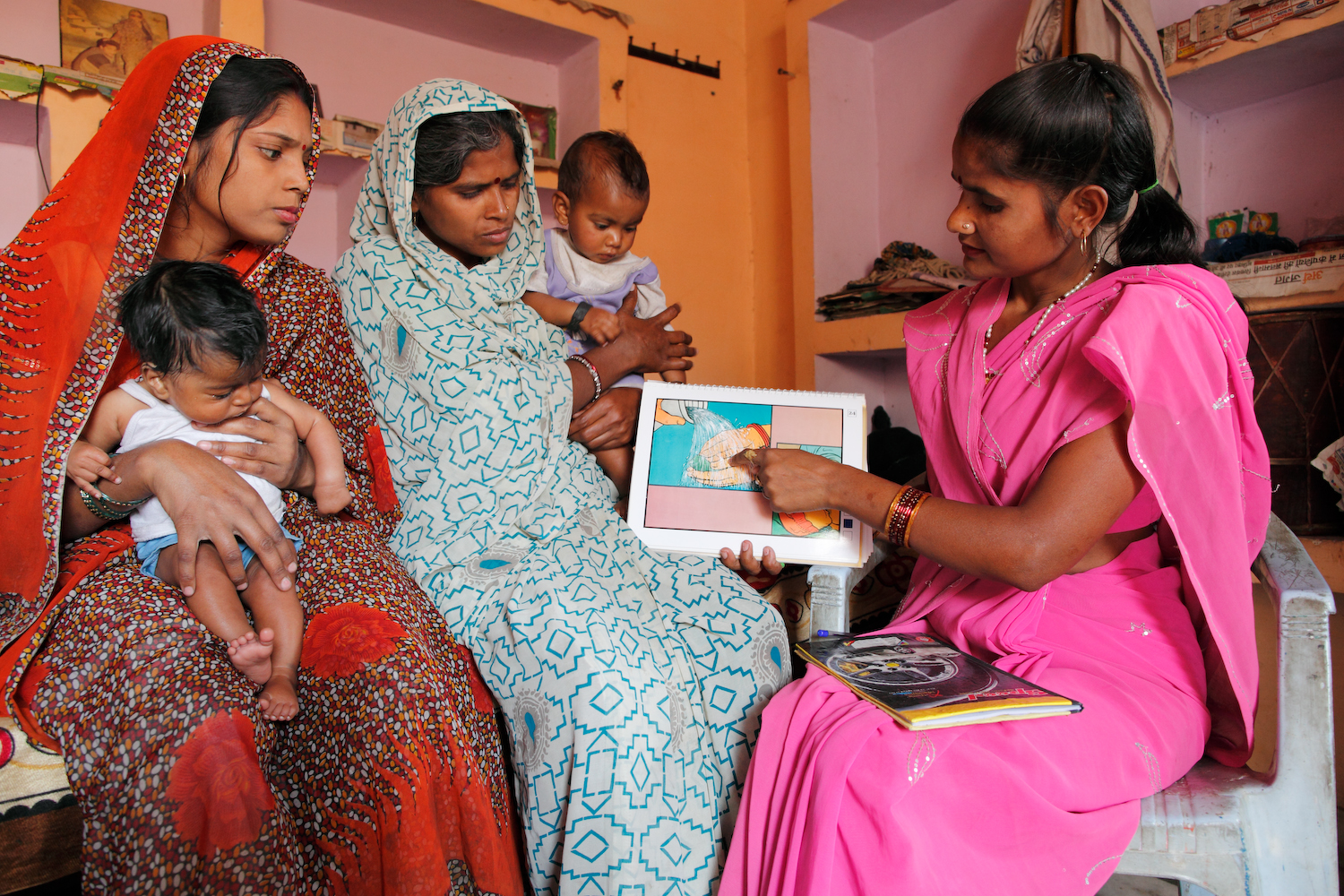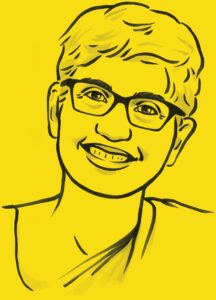“Behavioural interventions seem so simple when you read the books”
Why we need more behavioural science in the Global South: An interview with Neela Saldanha
Why we need more behavioural science in the Global South: An interview with Neela Saldanha
 Photo: Courtesy of Bernard van Leer Foundation.
Photo: Courtesy of Bernard van Leer Foundation.
The vast majority of the most-cited papers in psychology are authored by researchers from the Global North – and the interventions they describe may not work in the same way in the very different cultural contexts of the Global South. Neela Saldanha, Executive Director of the Yale Research Initiative on Innovation and Scale, USA, talks to Irene Caselli about the gaps in the Global South on behavioural science and how to fill them.

Neela Saldanha
How did you become interested in applying behavioural science to early childhood?
I come from a marketing background in the private sector. My PhD in consumer behaviour was my first introduction to behavioural science, and I found it fascinating. I began to think: we’re using behavioural science to sell consumer products, but are there better or more powerful uses to help people? Early childhood development is interesting because of the potential to do something that has disproportionate effects down the line.
What are the challenges when it comes to applying behavioural science outside of the Global North?
Behavioural interventions seem so simple when you read the books. The biggest lesson I learned was how hard it was to apply even simple interventions when they have not been tried out in a particular context. You have to understand the culture deeply before you can think about working towards behaviour change solutions.
Implementing interventions as simple as a text message reminder, for example, can be much more complex in India than in other places. You need to understand who has access to phones, how they use them and when. Many women, for example, do not have access to phones or social media, so interventions may privilege men.
And what are the challenges that relate especially to early childhood?
Behavioural interventions for one-time actions, such as getting a vaccination, are simpler than developing habits – and early childhood development is a series of small behaviours. It’s not one big thing that you do. There are small things that you do every single day for two, three years. Every individual behaviour seems easy, but to do many small behaviours, consistently, every day is very hard.
“Early childhood development is a series of small behaviours. It’s not one big thing that you do”
For example, when a woman is anaemic during pregnancy, the impacts on her child can be long- lasting. In India, iron tablets are provided for free by the government, but many pregnant women who need them do not take them consistently. So we talked to rural women and healthcare workers, and observed their lives, to understand the barriers and see if we could come up with interventions.
What did you find, and how did that inform the intervention design?
One common reason was the side effects. Many women said they stopped taking the tablets because they were worried when their stools turned black – which is normal and harmless, but nobody had told them that this would happen. Others said the tablets made them nauseous. They were also unclear about when to take the tablets, which meant they didn’t get into a habit of taking them. So we created a simple visual card for healthcare workers to use to explain side-effects and suggest how to tackle them, such as taking the tablets just before bedtime to minimise nausea.
Another common reason for non-compliance is simply forgetting. To avoid this and encourage building consistency, we created a calendar – kind of like an advent calendar – bundling goal progress with a reward. The calendar had stickers which the pregnant woman would peel off when she took a tablet, and it revealed a cute baby picture underneath – a tiny moment of joy that helped with keeping her focused on why she was taking the tablet.
You recently conducted research into behavioural messaging around Covid-19 in the Global South. What did you learn?
Together with a colleague at Cambridge, UK, Sakshi Ghai, we collected insights from behavioural scientists from around the Global South on how their interventions were being informed by the cultural context (Saldanha & Ghai, 2020). Two fellow behavioural scientists from India emphasised in their response how social norms on things like mask wearing and social distancing were hyper-local, varying not just from city to city but even from one housing block to another.
A lot of Covid-19 responses touched on the importance of understanding culture. For example, in South Africa there is this cultural concept of Ubuntu, or togetherness – the translation is “I am because we are” – and that made it very difficult to communicate the idea that you should physically distance yourself from people you care about. Another response suggested that a good angle might be to talk about respect for elders, which also runs very deep in South African culture.
“I’d really advocate for more local language, more local understanding and more local production of this kind of knowledge even if it isn’t perfect.”
What can be done to strengthen behavioural science research with other perspectives and experiences?
Rigorous and relevant behavioural science depends on trained talent and resources, both in education and in organisations in the Global South. For universities, this means funding and partnerships – to develop courses, train students and enable researchers to run studies and collaborate with others via conferences, access to high-quality journals and so on. For organisations, this means training and long-term partnerships to understand, implement and embed behavioural science, as well as hiring and developing the right local talent.
And there is one more simple wish – that we could have more translations in local languages. In many languages there isn’t an easy way to make people understand the idea of a “nudge”. I think the more we translate the more we’ll understand and get ideas from the ground up. So I’d really advocate for more local language, more local understanding, and more local production of this kind of knowledge even if it isn’t perfect.
See how we use your personal data by reading our privacy statement.
This information is for research purposes and will not be added to our mailing list or used to send you unsolicited mail unless you opt-in.
See how we use your personal data by reading our privacy statement.